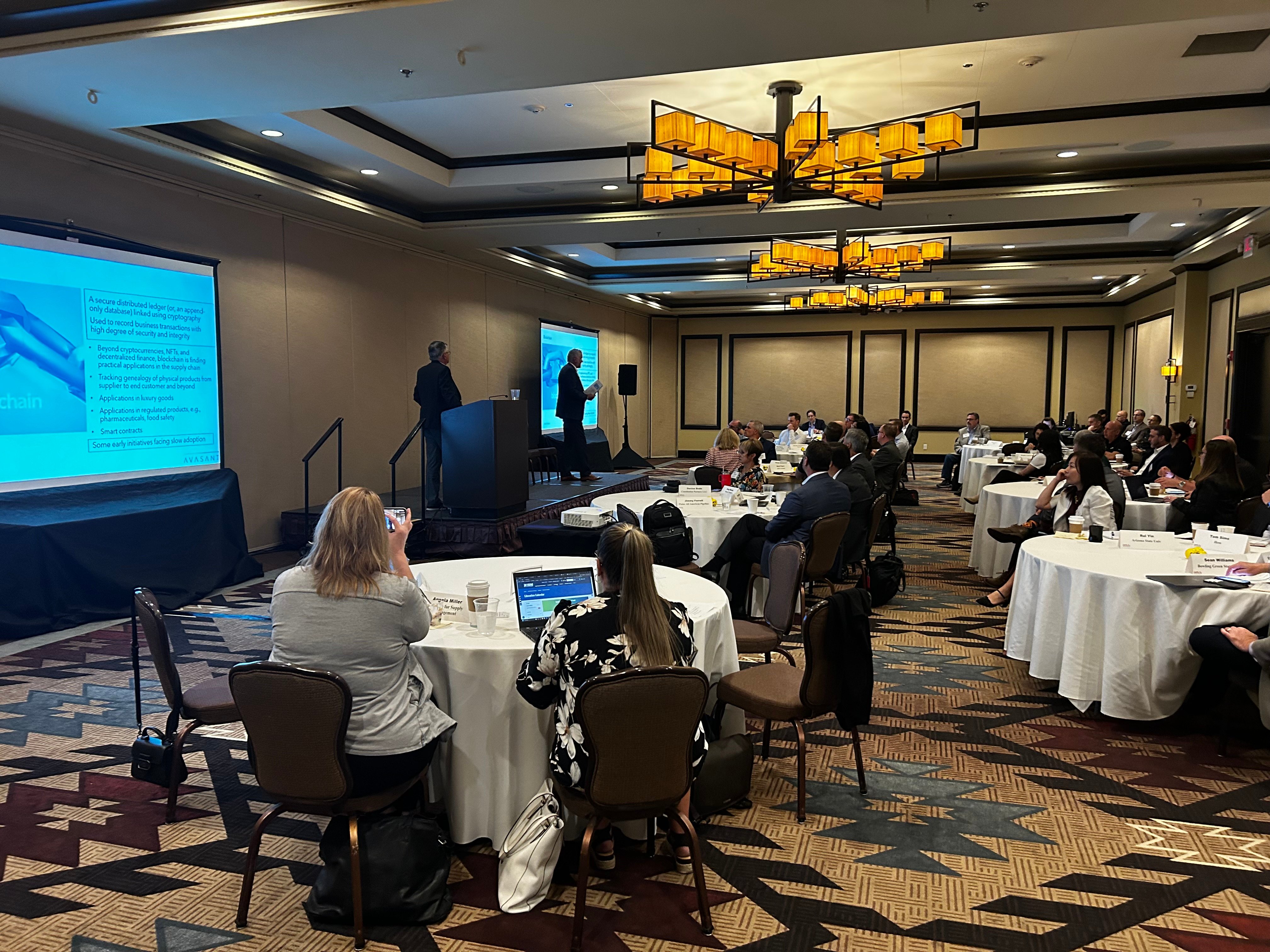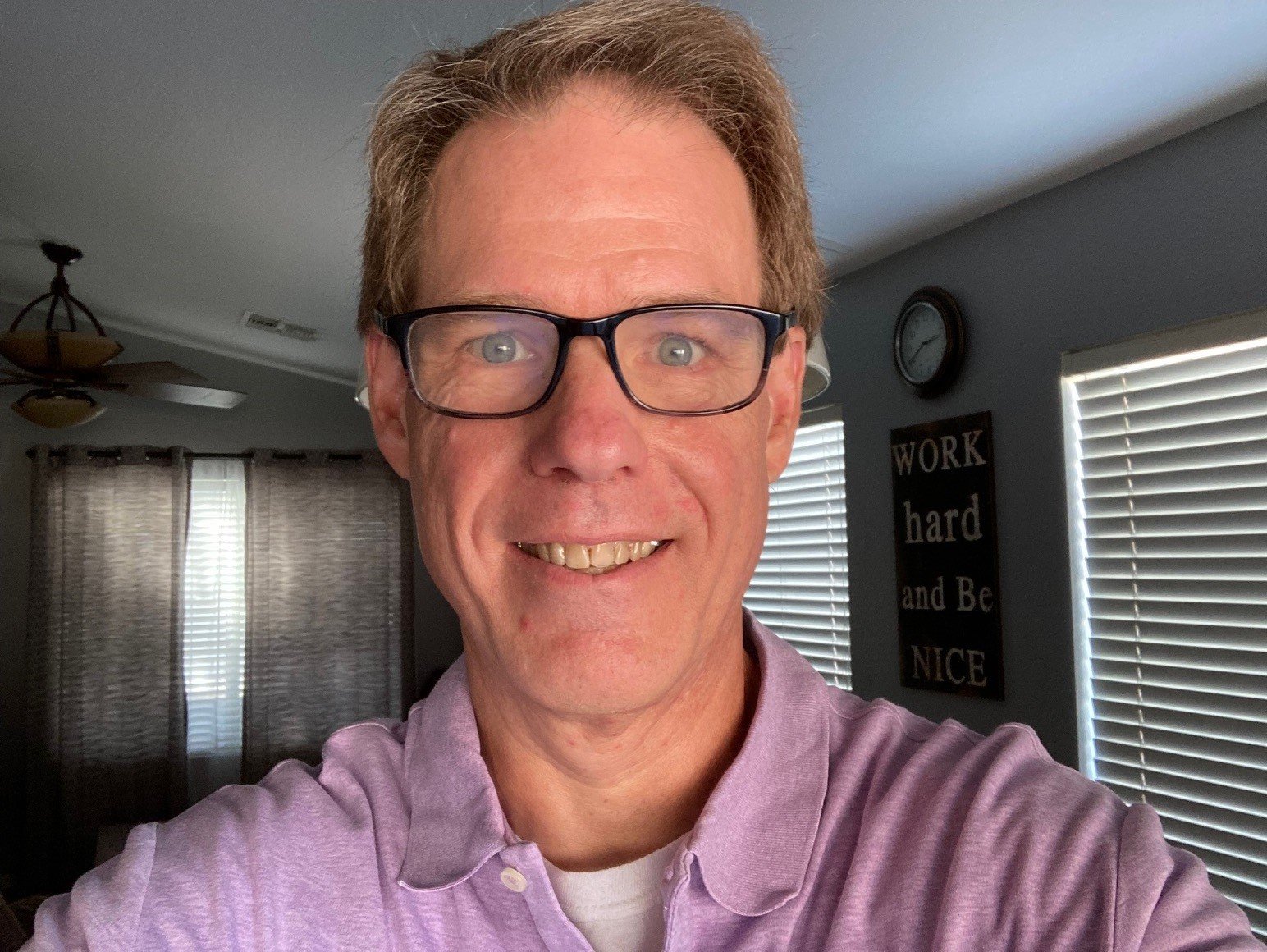CAPS Executive Summit: Transformation Begins With Communication

A skill that sets supply management leaders apart now as well as into the future? The ability to communicate.
How the importance of communication transcends all aspects of supply management was emphasized during last week’s 2023 CAPS Executive Summit. Whether in virtual or in-person talks with individual employees or teams, through emails, or in Zoom or Microsoft Teams meetings — or whether working with artificial intelligence (AI) or other technologies, strategizing, building resilience and agility, or any other supply management application — communication is a necessary factor in achieving success.
The Summit, held at the Wigwam Arizona resort in Litchfield Park, Arizona, featured talks by supply management leaders and experts in their fields, panel discussions, demonstrations, first-hand accounts and networking opportunities.
In addition to communication, other themes were technology trends, including how AI is already reshaping organizations and supply chains, and transformation, whether organizational, technological or related to sustainability or another area.
An Ongoing Process
Supply management transformation is critical and ongoing, Sean D. Williams, M.A., associate teaching professor at Bowling Green State University in Bowling Green, Ohio, told attendees. “This is going to be disappointing to a lot of people,” he said, “because when you go through a transformation, you want it to end.”
Denis Wolowiecki, Executive Managing Director at CAPS Research, the Tempe, Arizona-based organization in strategic partnership with Institute for Supply Management® and Arizona State University, noted, “Transformation … is not a quick journey. It’s a long, slow process. You fight all the way” to each goal.
In setting the groundwork for transformation, Wolowiecki said, it’s imperative to ensure that executives understand the journey: Set expectations upfront and get them on board with support.
That transformation is ongoing challenges a lot of leadership and education theories, Williams said: “If we’re going to be in a period of transformation that’s ongoing, communication will have to be at the very heart.”
Developing a Communication Plan
During his presentation “Engaging Stakeholders for Transformation Success,” Williams emphasized the importance of communication:
- Agility and resilience are the hallmarks of effective supply management organizations, he said, and communication is a key component in making them happen.
- Information without interpretation is noise. “We are buried in information,” Williams said. “We have more information now at our command than at any time in history, and yet we struggle to figure out what’s relevant and what to do with it. Communication enables us to interpret the information and draw conclusions that help our organizations.”
Williams also discussed the need for organizations to develop a communication plan. He cited his “AMMO” communication concept as a guide for creating that plan: A for audience you’re trying to reach, such as stakeholders; O for the objectives you want to communicate; M for the core message you want to impart; and M for methods of delivery (like email or direct communication), engagement and conversation.
“There is no one way to communicate that works for everyone and everything,” Williams said. “This is why we plan first.”

Other Summit Sessions
Jennifer Port, chief process sustainability engineer at ExxonMobil, told attendees she understands the eye rolling that can be elicited when a fossil fuel giant extols its sustainability efforts. But in her session “ExxonMobil and Net-Zero Initiatives,” she reiterated the company’s commitment to reach net-zero Scopes 1 and 2 emissions for many of its key operations by 2030, including those in the Permian Basin that includes parts of Texas and New Mexico.
“The objective is to provide energy and quality of life with lower emissions. And there are no easy answers,” she said. “If it were easier and cheaper, we would already be doing it.”
It’s a critical endeavor, Port said, adding that energy will always drive economies. “It’s a quality of life (dynamic),” she said. “We believe that where there is energy poverty, there is poverty.”
In the session “A View from Washington, D.C.: Policies, Regulations and Elections,” Denise Bode discussed how companies and procurement organizations can navigate a polarized political environment and divided Congress. Bode, managing partner and president of Constitution Partners LLC, a government affairs representation firm, advised not to wait “until you want something” to plan influence on elected officials and their staffs.
“Do it regularly: You might not get what you want, but you’ll get to meet with them,” she said. “Representatives have to know a lot of things, and they can’t know everything. So, they’ll need a trusted adviser. Be honest and succinct with them.”
Four supply management leaders shared transformation experiences, challenges and successes during a panel discussion, “Stores from the Front Lines — Successful Supply Chain Transformations.”
One of the speakers, Kevin Alexander, vice president of supply chain at Marmon Rail & Leasing, discussed his experiences working at Toyota’s industrial division, where he was hired to improve employee quality. The situation required a workplace cultural change that focused on continuity planning. To achieve it, which took about four years, Alexander emphasized “what was possible” as well as the career opportunities available to workers by becoming more strategic than tactical.
He learned that having a “really good process brings up the quality of the people” as well as the importance of trusting yourself and returning to the fundamentals of supply management. “What’s old is new,” he said. “Look at the research and think forward. Align with the problems you have and solve them.”
Another panelist, Pamela Skaufel, vice president of global procurement at ExxonMobil, came onboard at the inception of a transformation kick-off, she said. She could look at the transformation with “fresh eyes” and determine how to make it best work. Among other areas, she looked at was whether the right people were in the right roles. Among her learnings: Measure the success of your process further upstream, rather than looking only at the outcome.
Speakers emphasized the importance of benchmarking — using CAPS benchmarking — as a guide during transformation. These can help in determining areas needing improvement, Wolowiecki said.



